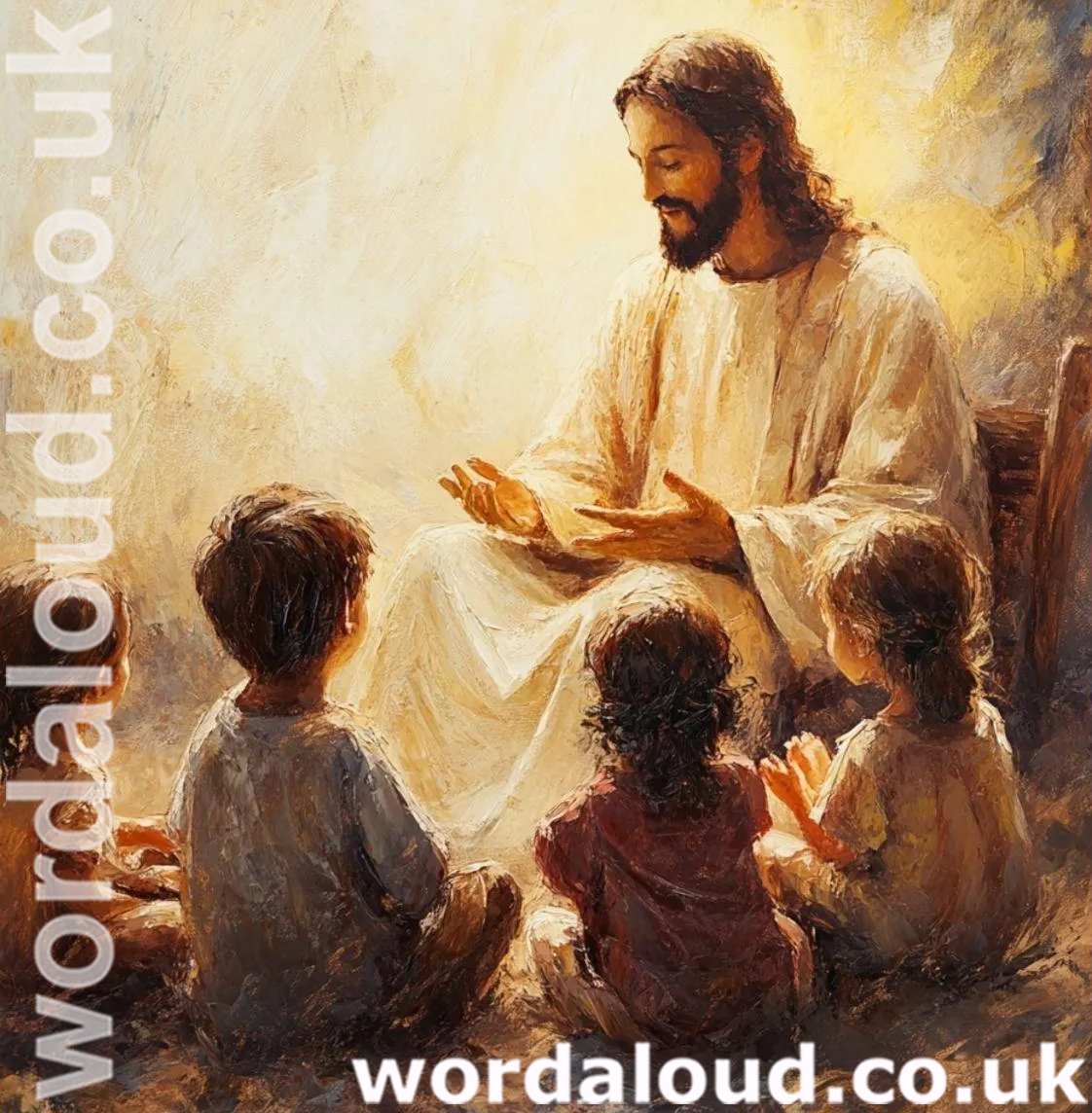Christian Art | Parable Of The Invited Guests | Parables Of Jesus | King James Audio Bible KJV
Luke 14: 15-24 | King James Audio Bible | KJV | Parables Of Jesus | Week 31 Tuesday
15 ¶ And when one of them that sat at meat with him heard these things, he said unto him, Blessed is he that shall eat bread in the kingdom of God.
16 Then said he unto him, A certain man made a great supper, and bade many:
17 And sent his servant at supper time to say to them that were bidden, Come; for all things are now ready.
18 And they all with one consent began to make excuse. The first said unto him, I have bought a piece of ground, and I must needs go and see it: I pray thee have me excused.
19 And another said, I have bought five yoke of oxen, and I go to prove them: I pray thee have me excused.
20 And another said, I have married a wife, and therefore I cannot come.
21 So that servant came, and shewed his lord these things. Then the master of the house being angry said to his servant, Go out quickly into the streets and lanes of the city, and bring in hither the poor, and the maimed, and the halt, and the blind.
22 And the servant said, Lord, it is done as thou hast commanded, and yet there is room.
23 And the lord said unto the servant, Go out into the highways and hedges, and compel them to come in, that my house may be filled.
24 For I say unto you, That none of those men which were bidden shall taste of my supper.
The Jews of Christ’s time thought of the coming of the Messiah and the restoration of Israel in terms of a great banquet, where poverty would give way to plenty and conflict to fellowship. Jesus has told two parables, while he dines at the house of the leader of the Pharisees, one of the choice of places at a feast and one of inviting the sick and the poor. In the light of the parables, a guest at the meal is moved to express the hope of the coming of the Messiah.
In this parable, those first invited to the feast are entitled to make their excuses, and clearly these are merely excuses as opposed to good reasons, and so to seek to mask their ingratitude. Through this, we are presented in the parable with a type of those who refuse Christ, who turn away from the Lord’s invitation and find themselves preoccupied – in the Law, their material possessions, their private interests, their accustomed ways. It seems the social fabric of their lives has its hooks in them, precluding their opening themselves to the gratuitous invitation to share in the great feast.
The great feast, however, must be shared, the house of the master filled, and so the servant is sent to call the poor and maimed and blind and lame – the socially excluded; these are they who are unencumbered by such pressing concerns as prevent those first invited from coming to enjoy this gathering. At first, the city is scoured for guests, and then the servant is even sent outside the city – the scope of the master’s new invitation broadens, just as pagans will be called to follow Christ, and just as, in Luke’s time, converted, Christian Jews will be called to share table fellowship with the gentile Christians, a hitherto unthinkable state of affairs.
The master is angry, and we may sense Christ’s ire as he tells this tale to the guests at this meal, holding up to them a mirror in which they must see their own rejection of Jesus reflected. These men have so much that they cannot become poor in spirit, or like a child, or so small, in humility, that they might pass through the eye of a needle – and so attain to the Kingdom. The food they now eat is exposed by Jesus as a sign of their self-exclusion from the heavenly banquet.
Concluding Prayer | Love Revealed By Jesus Christ
God be merciful unto us, and bless us; and cause his face to shine upon us; Selah.
2 That thy way may be known upon earth, thy saving health among all nations.
3 Let the people praise thee, O God; let all the people praise thee.
4 O let the nations be glad and sing for joy: for thou shalt judge the people righteously, and govern the nations upon earth. Selah.
5 Let the people praise thee, O God; let all the people praise thee.
6 Then shall the earth yield her increase; and God, even our own God, shall bless us.
7 God shall bless us; and all the ends of the earth shall fear him. (Psalm 67/66)
![]()

King James Audio Bible | Endnotes
The Parable of the Invited Guests, as recorded in Luke 14: 15-24, is one of the many parables told by Jesus in his ministry. This parable is unique in that it challenges the conventional wisdom of its day and provides insight into the nature of God’s kingdom.
In the parable, Jesus is dining at the home of a prominent Pharisee when he observes the guests jostling for the best seats. To illustrate a point, Jesus tells the story of a man who invites guests to a great banquet but is rejected by them one by one. He then invites the poor, the maimed, the blind, and the lame to take their place, saying: ‘For I say unto you, That none of those men which were bidden shall taste of my supper.’ (Luke 14:24, KJV)
This parable is often interpreted as a commentary on the nature of God’s invitation to enter his kingdom. Jesus is teaching that God’s kingdom is open to all, regardless of social status or wealth, and that those who are deemed unworthy by society are often the very ones who will be welcomed into his kingdom. This message is in stark contrast to the religious and societal norms of the time, which placed great importance on wealth and status.
In terms of its place in the larger narrative of Jesus’ ministry, the Parable of the Invited Guests should be considered alongside other teachings, such as the Sermon on the Mount, the Garden of Gethsemane, the Crucifixion of Jesus, and the Parable of the Prodigal Son. These events and teachings are central to the Christian faith and provide a deeper understanding of the nature of God, the role of Jesus as the Christ, and the importance of forgiveness and redemption.
For Christians, the Parable of the Invited Guests is a reminder of the centrality of Jesus in their faith, and of the importance of responding to God’s invitation to enter his Kingdom. The parable also speaks to the importance of prayer, baptism, and the Christian Cross as symbols of one’s commitment to the faith. In addition, it is often considered in light of the Pentecostal movement, which emphasizes the role of the Holy Spirit in the lives of believers.
All of Jesus’ parables speak of Jesus as the one who is the gateway. In this sense, Jesus’ utterance of the parables is reflexive. And again, we are minded to direct our thought to the Passion of the Christ – of that most difficult joy in Jesus’ suffering.
The Parable of the Invited Guests is significant in its reminder of the consequences of rejecting God’s invitation. In the story, those who reject the invitation are excluded from the banquet. Christians believe that a similar fate awaits those who reject God’s invitation to enter his Kingdom. This is choice of heaven or hell – of Christ the Redeemer or Satan’s false promises.
In conclusion, Jesus of Nazareth plants his seeds in the parable to encourage and inform Christian faith. We explore through engagement the nature of God’s Kingdom, the role of Jesus as the Christ, and the importance of responding to God’s invitation.








